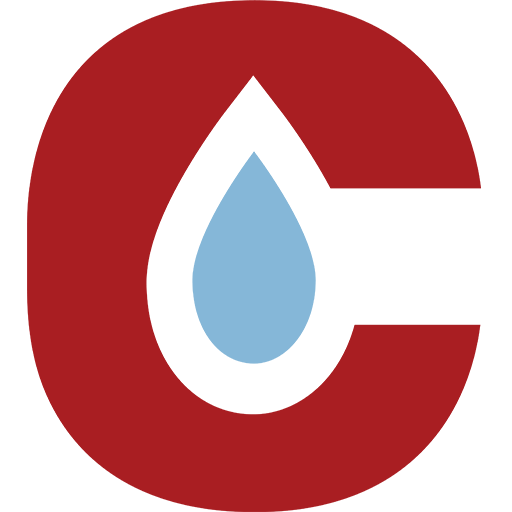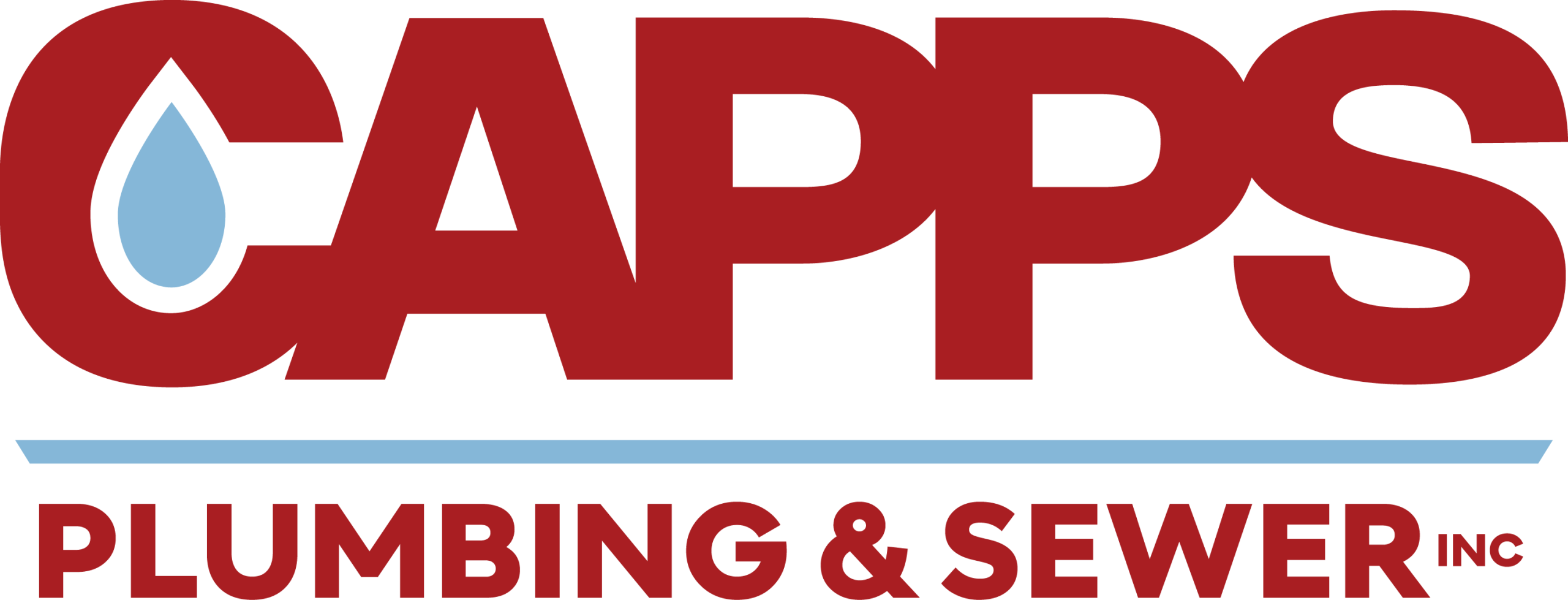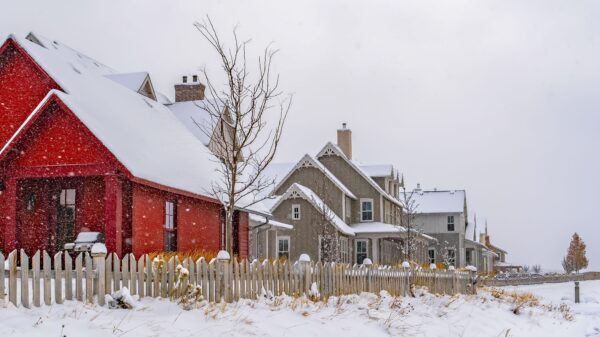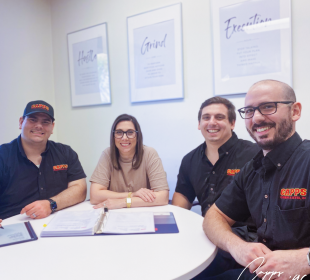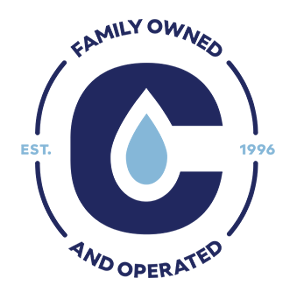Winters in Illinois are often brutal, and all that cold can pose a serious risk to your home’s plumbing. If the power were ever to go out and prevent your heating system from running, your home could quickly get cold enough that your pipes could start to freeze. Even if your heating system is working, your pipes could still potentially freeze during an extreme cold snap. Most people already know what steps they need to take to prevent their pipes from freezing. However, something you may not know is that your water heater also has the potential to freeze and cause the unit or the pipes to rupture.
Both tank and tankless water heaters can freeze under certain conditions. A tank water heater really shouldn’t ever be able to freeze as long as the unit is on since it will continue to heat occasionally to prevent the water in the tank from ever being too cold. However, a tank water heater definitely can freeze if the power goes out and the unit stays off for more than a day or so. A tankless water heater will always be more at risk of freezing as it won’t ever turn on and heat unless you’re currently using hot water. Luckily, there are a few easy steps you can take to prevent your water heater from freezing. Here is what you need to know to ensure your water heater doesn’t ever freeze.
Drain Your Water Heater as a Precaution
There are a few situations where draining your water heater is a good precaution to ensure the unit can’t freeze, such as if your power ever goes out during the winter when the outside temperature is below freezing. Draining your water heater is also a good idea if you’re going on vacation. This ensures your water heater doesn’t freeze just in case the power goes out or your heating system stops working while you’re away.
It is even more important that you drain a tankless water heater any time you’ll be away. Even though tankless units don’t store hot water, some water always remains inside the unit. This standing water could easily freeze overnight since the unit won’t ever turn on.
Draining a tankless unit is a simple task that only takes a couple of minutes and can be well worth it. The first thing to do is shut off the electricity or gas to the unit. Then, shut the valves on the cold water inlet and hot water outlet pipes so no more water flows. There should be a cap on each pipe that provides access to the T-shaped purge valve. After removing the cap, attach hoses to the valves and then run the hoses so that they drain into a bucket or to a floor drain. You can then open each of the valves until the unit fully drains. Once the unit is fully drained, make sure you fully close each valve so that the unit doesn’t leak once you turn the water back on when you get home from vacation.
Always Leave a Tankless Water Heater Plugged In
Most gas and electric units have a built-in electric heater that is designed to prevent the unit from freezing any time it sits idle in cold weather. If the temperature ever drops below a certain point, the heater will automatically turn on to ensure the standing water in the unit doesn’t get cold enough to freeze. This is why it is essential that you always leave the unit plugged in whenever extremely cold weather is predicted. That being said, we would still always recommend shutting off the unit and draining it if you’re going on vacation, just to be safe.
Leave a Trickle of Hot Water Running Overnight
If extremely cold weather is predicted, it is a good idea to take some extra precautions to prevent a tankless unit from freezing. Again, the unit’s internal heater should prevent it from freezing, but there is always a chance that the heater may not work properly. In this case, it is always best to err on the side of caution.
The easiest way to ensure the unit doesn’t potentially freeze is to turn on the hot water at one faucet so that only a trickle is coming out. This will allow some water to continuously flow through the unit to help ensure it doesn’t freeze. However, you don’t actually want the unit to run all night as this will waste lots of energy. Instead, what you should do is turn the unit off and leave it plugged in. The internal heater should still run, but the unit won’t heat the water that is flowing through it to prevent energy waste.
Upgrade Your Home With a Hot Water Recirculating System
Recirculating systems can provide many benefits. This type of system should work to ensure your pipes and water heater can’t freeze while also ensuring that your water is fully hot the instant you turn on your sink or shower. If you have a tankless unit, a recirculating system should also ensure that none of the other precautions we’ve mentioned are necessary.
A recirculating system consists of a water pump and a temperature sensor. The sensor is typically installed inside the hot water pipe that feeds the furthest fixture from the water heater. The sensor constantly measures the water temperature in that pipe. As soon as the sensor detects that the water temperature is below a set point, the system will pump the water in all of the hot water lines back to your water heater so it can be reheated. Once the water temperature is back to where it should be, the pump and your water heater will then shut back off until the temperature drops and the sensor signals the system to run again.
Recirculating systems can work with either a tank or a tankless water heater. A recirculating system is especially great if you have a tankless water heater as it will mostly eliminate the lag time, which is how long you need to wait from turning the fixture on until hot water starts to flow. Since tankless units heat on demand, they often have issues with long lag times.
When your pipes are cold during the winter, it can often take up to a few minutes before the water flowing from the fixture finally gets hot enough. Even though the water will be hot when it exits the water heater, the cold pipes will cool it down as it travels to the fixture. As such, the pipes themselves will also have to become hot before hot water actually starts to flow from the fixture. This lag time can end up wasting lots of water every time you shower, which is something that a recirculating system will help you to avoid.
If you do ever have issues with frozen pipes or your water heater freezing, Capps Plumbing & Sewer is here to help. We specialize in frozen pipe repairs and all types of water heater services. We also offer drain cleaning and other types of residential and commercial plumbing services for customers in Wheeling and the surrounding areas. For more information, give us a call today.
